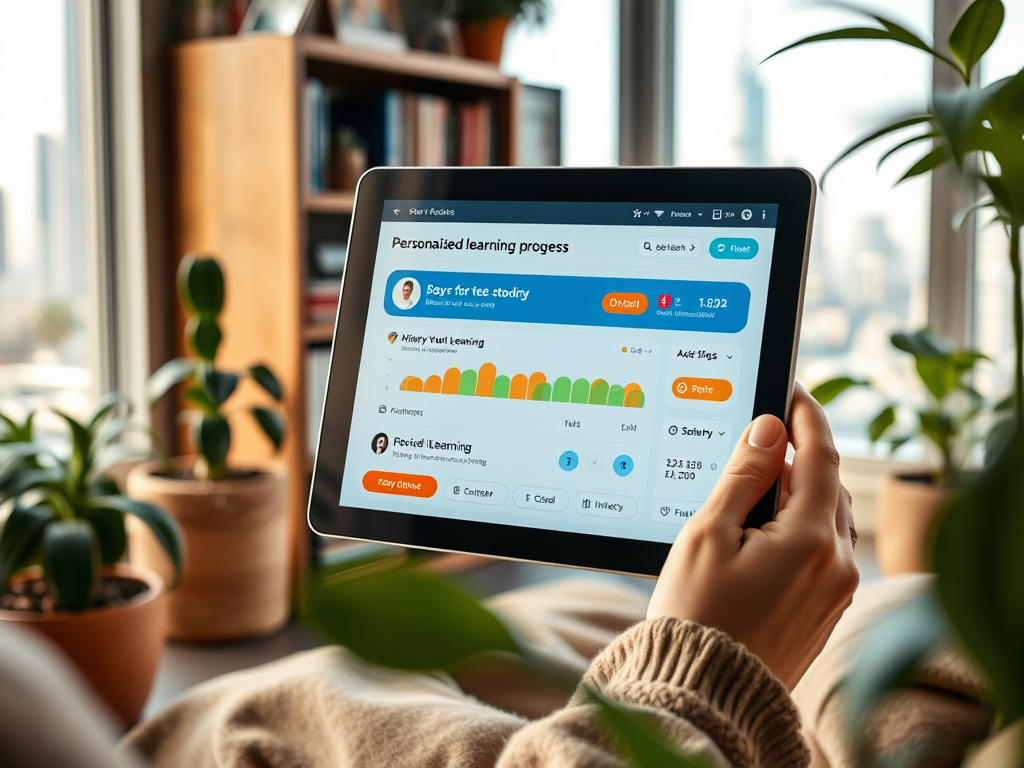Dubai stands at the forefront of integrating artificial intelligence (AI) into its education system, ushering in a new age of innovation and personalized learning. The potential of AI-driven education platforms in Dubai lies in their ability to enhance learning experiences, tailor educational content to individual needs, and improve administrative efficiency. As the city endeavors to be a global education hub, leveraging AI can significantly transform traditional teaching methods and foster a culture of continuous improvement within educational institutions. In this article, we will explore how these platforms function, their benefits, and the implications for students and educators alike.
Understanding AI-Driven Education Platforms

AI-driven education platforms utilize sophisticated algorithms and data analytics to provide personalized and adaptive learning experiences. These platforms analyze vast amounts of data, including student performance metrics, learning styles, and preferences, to create customized educational pathways. Here’s how they primarily work:
- Data Collection: Platforms gather data through quizzes, assignments, and interactions to understand each student’s progress.
- Adaptive Learning: The AI algorithms adjust the content based on the collected data, providing resources that meet the learner’s needs.
- Feedback Mechanisms: Instant feedback is delivered to help students identify areas for improvement and reinforce their strengths.
This personalized approach to education not only enhances student engagement but also promotes better academic outcomes by addressing individual learning gaps effectively.
The Benefits of AI in Education

The integration of AI into Dubai’s educational landscape presents numerous advantages for both students and educational institutions. Some of the core benefits include:
- Personalized Learning: AI can effectively curate learning experiences tailored to each student’s pace and understanding, ensuring no one is left behind.
- Increased Efficiency: Automating administrative tasks allows educators to focus more on teaching rather than paperwork.
- Data-Driven Decisions: Insights drawn from student data help educators to make informed decisions about curriculum development and instructional strategies.
- 24/7 Availability: AI platforms offer round-the-clock access to resources and learning materials, accommodating various schedules and time zones.
- Enhanced Engagement: Incorporating gamification and interactive elements can stimulate student interest and participation significantly.
By leveraging these benefits, educational institutions in Dubai can enhance both teaching and learning experiences, fostering an environment of innovation and excellence.
The Role of Educators in an AI-Powered Environment
While AI-driven platforms bring many advancements, the role of educators remains irreplaceable. Teachers in Dubai will need to evolve their methodologies to embrace technology, ensuring it complements their traditional teaching roles. A successful integration of AI requires educators to:
- Become Tech-Savvy: Educators should be trained to use AI tools effectively, becoming adept at interpreting data to inform their teaching practices.
- Maintain Human Connection: The emotional and social elements of teaching must be emphasized, ensuring students receive the support they need beyond what AI can offer.
- Continual Professional Development: Staying updated with emerging technologies and strategies will be essential in adapting to the changing landscape of education.
As teachers assume new roles as facilitators and mentors, they will play a critical part in guiding students through their AI-enhanced educational journey.
Dubai is well-positioned to lead in education technology, particularly with its diverse student demographic and international academic standards. Several key trends are emerging that signal a transformative future for education in the city:
- Collaborative Learning Environments: Increased use of AI to foster collaboration among students from various backgrounds and cultures.
- Global Learning Networks: The potential for students in Dubai to connect with peers and experts worldwide through AI platforms.
- Focus on STEM: Education focused on science, technology, engineering, and mathematics will be enhanced through personalized AI initiatives.
Overall, the future of education in Dubai could be marked by increased accessibility, improved learning outcomes, and a global educational perspective that is inclusive and responsive to the needs of students.
Conclusion
Dubai’s investment in AI-driven education platforms represents a paradigm shift in how learning and teaching are approached. By harnessing the power of technology, educators can personalize instruction, streamline administrative processes, and engage students in meaningful ways. While business as usual may no longer suffice, the integration of AI into the educational sector holds immense potential to redefine success and accessibility in education. As Dubai progresses towards becoming a global center for education, the collaboration between technology and traditional teaching will be crucial in shaping the next generation of learners.
Frequently Asked Questions
1. What are AI-driven education platforms?
AI-driven education platforms utilize artificial intelligence to tailor learning experiences and improve educational outcomes through data analysis and personalized content.
2. How can AI benefit students in Dubai?
AI can provide personalized learning experiences, increase engagement, offer round-the-clock resources, and cater to individual learning needs effectively.
3. What is the role of teachers in AI-powered education?
Teachers will play a crucial role as facilitators and mentors, guiding students in an AI-enhanced environment while maintaining the emotional and social connections essential for learning.
4. What are the future trends in AI education in Dubai?
Future trends may include collaborative learning environments, global learning networks, and a strong focus on STEM education through personalized AI initiatives.
5. Are there any challenges associated with AI in education?
Challenges include the need for teacher training, ensuring data privacy, and maintaining the human element in education despite increased reliance on technology.
